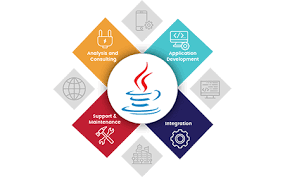Becoming a Java Software Engineer: Crafting Code with Precision
The Role of a Java Software Engineer
Java software engineers play a crucial role in the development and maintenance of software applications using the Java programming language. With its versatility and robustness, Java is one of the most widely used programming languages in the world, making Java software engineers highly sought after in the tech industry.
Responsibilities of a Java Software Engineer
Java software engineers are responsible for designing, developing, and testing software applications that meet specific business needs. Their duties may include:
- Writing well-designed, efficient code using Java and related technologies
- Collaborating with cross-functional teams to define, design, and ship new features
- Troubleshooting and debugging software issues to ensure optimal performance
- Implementing best practices for software development, including code reviews and testing
- Staying updated on emerging technologies and trends in the Java ecosystem
Skills Required for Java Software Engineers
To excel in their role, Java software engineers need a combination of technical skills and soft skills. Some essential skills for a Java software engineer include:
- Proficiency in Java programming language and related frameworks like Spring or Hibernate
- Knowledge of object-oriented design principles and design patterns
- Experience with database management systems such as MySQL or Oracle
- Strong problem-solving abilities and attention to detail
- Excellent communication and teamwork skills to collaborate effectively with colleagues
Career Outlook for Java Software Engineers
The demand for skilled Java software engineers continues to grow as businesses rely on technology solutions to drive innovation and efficiency. With opportunities in various industries such as finance, healthcare, e-commerce, and more, Java software engineers can expect a rewarding career with ample room for growth.
In Conclusion
A career as a Java software engineer offers exciting challenges and opportunities to work on cutting-edge projects that impact users worldwide. By mastering the intricacies of the Java programming language and staying abreast of industry trends, Java software engineers can carve out a successful career path in the dynamic field of software development.
5 Essential Tips for Aspiring Java Software Engineers
- Focus on mastering core Java concepts and principles.
- Practice coding regularly to improve your problem-solving skills.
- Stay updated with the latest Java technologies and frameworks.
- Collaborate with other software engineers to learn from each other.
- Contribute to open-source projects to gain practical experience.
Focus on mastering core Java concepts and principles.
To excel as a Java software engineer, it is essential to focus on mastering core Java concepts and principles. Understanding fundamental concepts such as object-oriented programming, inheritance, polymorphism, and encapsulation lays a solid foundation for building robust and efficient software applications. By honing your skills in core Java principles, you can enhance your problem-solving abilities and develop solutions that are scalable, maintainable, and high-performing. Continuous learning and practice in core Java concepts will not only make you a proficient Java developer but also open up opportunities for growth and advancement in your career as a software engineer.
Practice coding regularly to improve your problem-solving skills.
One valuable tip for aspiring Java software engineers is to practice coding regularly to enhance their problem-solving skills. By consistently engaging in coding exercises and challenges, individuals can sharpen their ability to analyze complex problems, break them down into manageable steps, and devise efficient solutions using Java programming concepts. This practice not only reinforces technical proficiency but also fosters a proactive mindset that is essential for success in the dynamic field of software engineering.
Stay updated with the latest Java technologies and frameworks.
To excel as a Java software engineer, it is essential to stay updated with the latest Java technologies and frameworks. By keeping abreast of industry advancements, such as updates to the Java language, new frameworks like Spring Boot, or emerging trends in cloud-native development, software engineers can enhance their skills and remain competitive in the ever-evolving tech landscape. Continuous learning and adaptation to new technologies not only broaden one’s expertise but also enable them to deliver innovative solutions that meet the demands of modern software development projects.
Collaborate with other software engineers to learn from each other.
Collaborating with other software engineers is a valuable tip for Java software engineers to enhance their skills and knowledge. By working together with peers, sharing insights, and learning from each other’s experiences, Java software engineers can gain fresh perspectives, discover new techniques, and stay updated on industry best practices. This collaborative approach not only fosters a sense of community within the tech field but also promotes continuous learning and professional growth, ultimately leading to more innovative and efficient solutions in software development projects.
Contribute to open-source projects to gain practical experience.
Contributing to open-source projects is a valuable tip for aspiring Java software engineers looking to gain practical experience. By participating in open-source initiatives, individuals can collaborate with seasoned developers, work on real-world projects, and enhance their coding skills. This hands-on experience not only helps in understanding best practices and industry standards but also provides an opportunity to build a strong portfolio that showcases one’s expertise in Java programming. Additionally, contributing to open-source projects fosters a sense of community and allows individuals to make meaningful contributions to the larger software development ecosystem.









